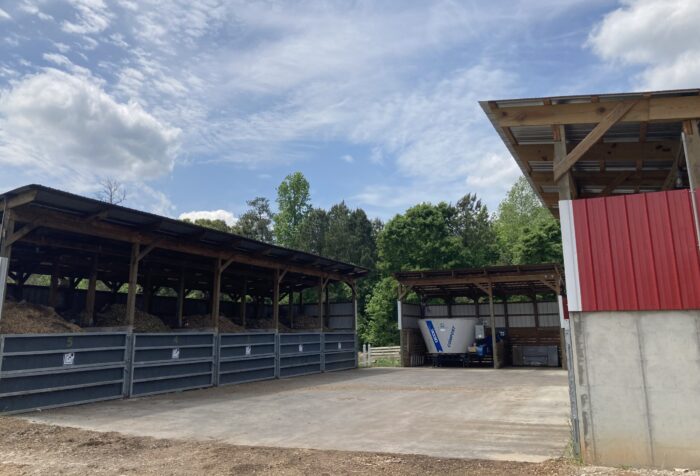Composting
We began a composting initiative at all of our dining halls in August 2010 and at One Earth in Talley Student Union in 2014. Since then, we have added composting to On the Oval and done several waste audits to identify opportunities to improve this initiative.
The NC State Compost Facility and Research Cooperative began operations in 2019 and has since collected thousands of tons (around 1,200 tons per year) of compost from campus—including contributions from dining locations such as Fountain, Case, Clark, University Towers, On the Oval and Talley Student Union. The composting initiative has helped NC State divert waste from landfills as part of the 70% diversion goal under NC State’s Sustainability Strategic Plan. It has also created a closed-loop system with dining halls—food waste from Dining is cured into compost and creates a soil amendment that in turn, helps the agroecology farm grow more produce for the dining halls.

GreaseCycle
NC State Dining works with GreaseCycle to collect and upcycle oil waste. The organic waste is converted into biodiesel fuel and composting soil. Not only is the oil being put to good use, but it also is collected at no cost to us, saving thousands of dollars each year. As of September 2024, the GreaseCycle program recycled 8,700 gallons of cooking oil annually.
Dining Hall Take-out boxes
This program helps minimize disposable waste while offering convenient and eco-friendly dining options.
- Reusable Containers: Guests can purchase a reusable takeout container for a one-time fee of $3.50. These containers can be returned, rinsed and exchanged for a clean one or a token for future use, reducing single-use waste.
- Compostable Options: At One Earth, guests receive compostable containers and cups, which can be disposed of in compost bins, supporting our commitment to waste diversion.
- Sustainability for Everyone: The program is available to all campus community members, including students, faculty, staff and non-meal plan holders.
Waste Reduction and Recycling
NC State Dining works closely with the Waste Reduction and Recycling office to identify issues and opportunities to reduce contamination of waste streams, divert waste from the landfill, and overall reduce, reuse, and recycle to our fullest potential. We work with WRR on educational initiatives such as staff training and tabling opportunities, sourcing compostable products, providing sustainability messaging to the campus community, collaborations during sustainability events and more.
A new joint tabling initiative called Watch Our Waste Wednesday was launched in fall 2024 to educate students about waste sorting, composting and recycling, current operations and other sustainability topics. NC State Dining is also committed to several waste reduction and recycling efforts throughout each of our dining locations, including:
- Reusable dinnerware in the dining halls instead of disposables
- Cardboard and paper recycling at all locations
- Plastic bottle and aluminum can recycling in most locations
- Use of electronic media to reduce paper use
- Operating the CBORD Food Management System, a sophisticated computerized food production system. It is designed to drastically reduce waste through “just in time” purchasing methods and eliminate food waste caused by overproduction.